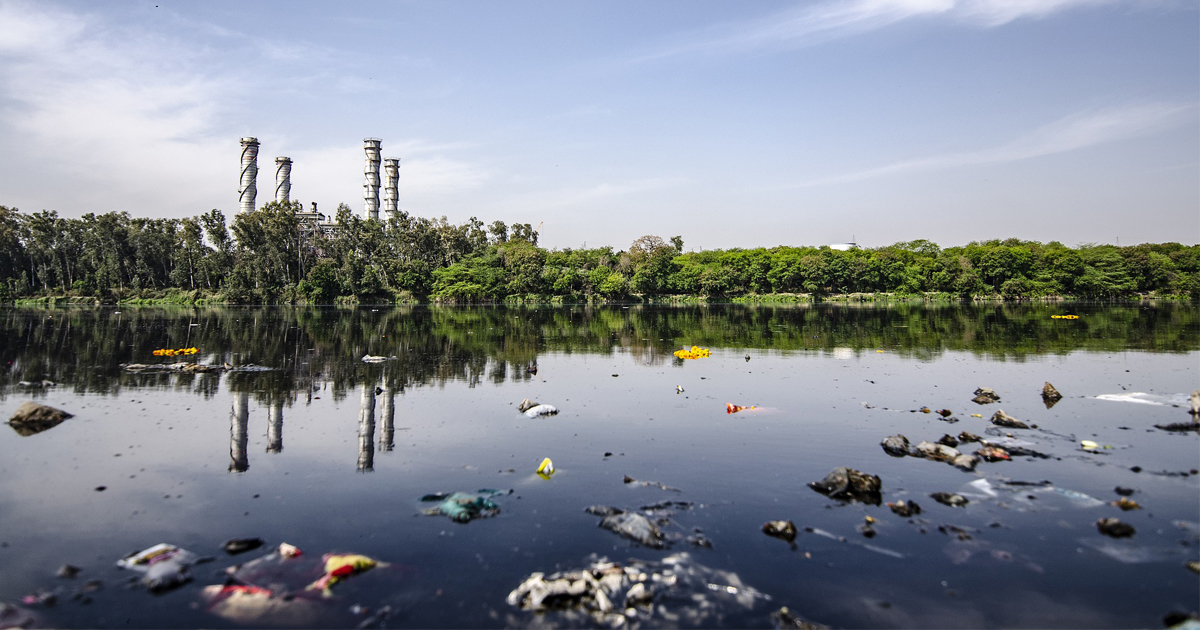What causes Water Pollution?
Water pollution occurs as a result of both natural and human-made activities.
Natural causes such as volcanic eruptions, earthquakes, algae blooms, animal waste and silt from storms have been known to modify and contaminate water, however, man-made actions such as domestic sewage, pesticides and fertilizers from farms, debris from construction sites, and general littering are all identified as the most worrying causes.

What are the effects of Water Pollution?
Water pollution can damage the environment. For example sewage, may reduce the amount of oxygen in the water, causing disruption to marine life and may affect the entire food chain, leading to endangerment and extinction of species.
Our health can also be impacted due to poor water quality. Dirty water contaminated with bacteria and pathogens makes people sick. It is estimated that around 785 million people around the world are deprived from clean water leading to various illnesses and death.
Did you know?
Only 2.5% of all the water on the planet is fresh water that it is drinkable however only 1% is easily accessible in rivers, lakes and streams.
Due to lack of clean drinking water, it is estimated that around 4,500 people die daily from preventable diseases due to lack of accessible clean water.
How can you do your part to reduce Water Pollution?
- Don’t waste water – Check out our top tips on: How to reduce water waste in the kitchen, How to reduce water waste in the bathroom and How to reduce water waste in your garden and outdoor areas.
- Do not litter – Make sure that you always pick up your trash. Use the bins provided especially when on the beach. Never dispose of cigarette buts on the floor as these may easily be carried away into our oceans.
- Avoid plastic – including shopping bags, plastic rings for six-packs of beverages, bottles, as these last for decades in the water. Instead opt for reusable cloth bags and bottles.
- Dispose of waste properly – Chemicals such as bleach, paint and thinner are not to be flushed down the drain. Even medical waste should not be dumped in the toilet and should be taken to the pharmacy to safely dispose of them.
- Shop for cleaning products wisely – Several companies now sell non-toxic cleaners and biodegradable cleaners and pesticides. Also, look out for Phosphate-Free Detergents and Dish Cleaners.
- Increase intake of organic food – These have fewer synthetic chemicals, which harm the environment if it ends up in water.
- Cut down on meat consumption - Raising animals for meat consumption requires plenty of water. Antibiotics and animal waste tend to end up making their way to the oceans.
- Join an organisation – attend beach clean-ups and raise awareness amongst your friends and relatives.
Sources:
WWF, Water Pollution, 2022, https://wwf.panda.org/discover/knowledge_hub/teacher_resources/webfieldtrips/water_pollution/
[Accessed 7 February 2022]
Drop The Bucket, The Water Crisis, 2022, https://dropinthebucket.org/water-facts/?gclid=CjwKCAiAo4OQBhBBEiwA5KWu_-G8Y3OqzR9ELKq-09myrxsQMYNU0AJAnF843i8qXhR37qECTf_rARoCkpcQAvD_BwE
[Accessed 7 February 2022]
Conserve Energy Future, What is Water Pollution?, 2022, https://www.conserve-energy-future.com/sources-and-causes-of-water-pollution.php
[Accessed 7 February 2022]
Ducksters, The Environment – Water Pollution, 2022, https://www.ducksters.com/science/environment/water_pollution.php
[Accessed 7 February 2022]
Arcadia Blog, 15 Proven Ways We Can Reduce Water Pollution, 2017, https://blog.arcadia.com/15-proven-ways-can-reduce-water-pollution/
[Accessed 7 February 2022]
SIGN UP FOR OUR NEWSLETTER
The information contained herein is for general information purposes only. APS Bank plc will not be held responsible or liable in any manner for any of the information contained herein. While APS Bank plc has made every attempt to ensure that the information contained herein has been obtained from reliable sources, APS Bank plc will not be held responsible for any errors, omissions or inaccuracy, or for the results obtained from the use of this information. The primary purpose of these articles is to educate and inform. These articles do not constitute legal, medical or professional advice or service.

